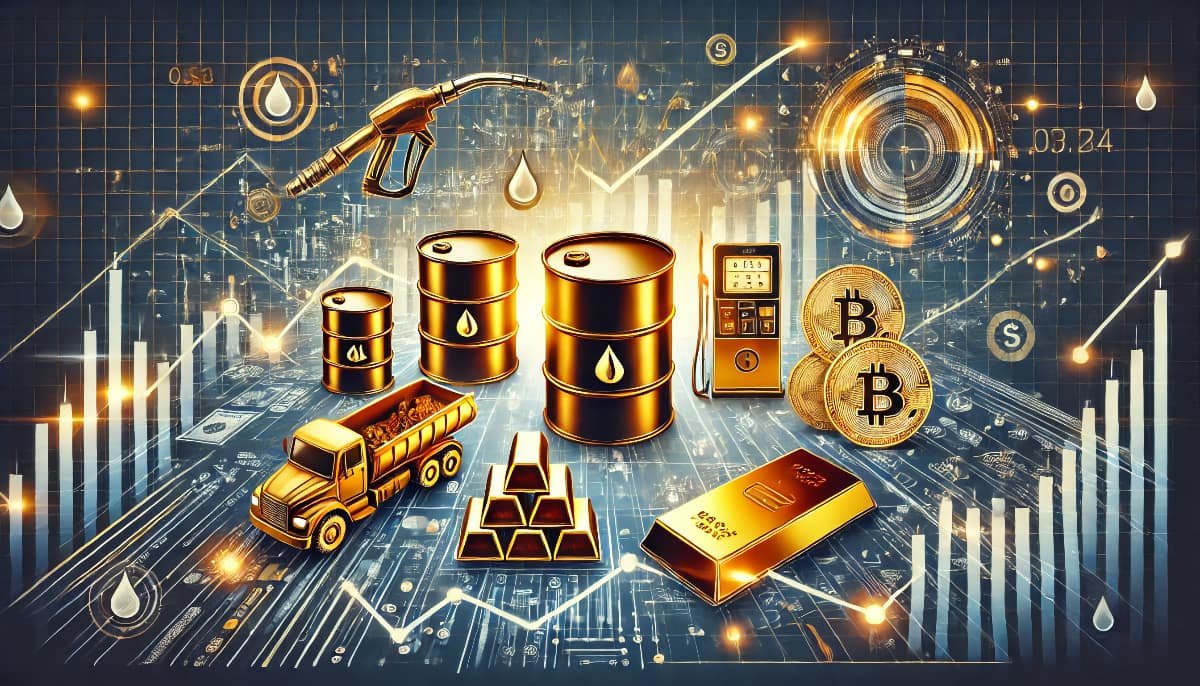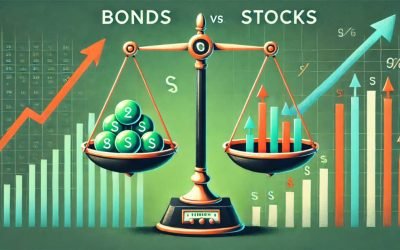Understanding the Basics of Commodity Investment
Investing in commodities has long been a popular strategy for diversifying portfolios and hedging against inflation. Commodities, such as oil, gas, and precious metals, are tangible assets that can provide stability and growth potential in uncertain economic times. This article delves into the intricacies of investing in these commodities, offering valuable insights and practical advice for both novice and experienced investors.
What Are Commodities?
Commodities are raw materials or primary agricultural products that can be bought and sold. They are typically divided into two main categories:
- Hard Commodities: These include natural resources that must be mined or extracted, such as oil, gas, and precious metals.
- Soft Commodities: These are agricultural products or livestock, such as wheat, coffee, and cattle.
In this article, we will focus on hard commodities, specifically oil, gas, and precious metals, and explore the various ways to invest in them.
Why Invest in Commodities?
There are several reasons why investors might choose to include commodities in their portfolios:
- Diversification: Commodities often have a low correlation with other asset classes, such as stocks and bonds, which can help reduce overall portfolio risk.
- Inflation Hedge: Commodities tend to perform well during periods of high inflation, as their prices generally rise along with the cost of living.
- Potential for High Returns: Commodity prices can be highly volatile, offering the potential for significant gains if timed correctly.
Investing in Oil
The Importance of Oil
Oil is one of the most crucial commodities in the global economy. It is a primary source of energy and a key input in various industries, including transportation, manufacturing, and chemicals. As a result, fluctuations in oil prices can have far-reaching effects on economic growth and stability.
Ways to Invest in Oil
There are several methods for investing in oil, each with its own advantages and disadvantages:
- Direct Investment: Purchasing physical barrels of oil is impractical for most investors. Instead, they can invest in oil futures contracts, which are agreements to buy or sell a specific quantity of oil at a predetermined price on a future date.
- Oil Stocks: Investing in shares of oil companies, such as ExxonMobil or BP, provides exposure to the oil market without the complexities of futures trading.
- Exchange-Traded Funds (ETFs): Oil ETFs, such as the United States Oil Fund (USO), track the price of oil and offer a more accessible way for investors to gain exposure to the commodity.
- Mutual Funds: Some mutual funds focus on the energy sector, providing diversified exposure to oil and other energy-related assets.
Factors Influencing Oil Prices
Several factors can impact oil prices, including:
- Supply and Demand: Changes in global oil production and consumption can cause significant price fluctuations.
- Geopolitical Events: Political instability in oil-producing regions can disrupt supply and drive up prices.
- OPEC Decisions: The Organization of the Petroleum Exporting Countries (OPEC) plays a significant role in determining global oil supply and prices through its production quotas.
- Technological Advances: Innovations in extraction and production techniques, such as hydraulic fracturing (fracking), can impact oil supply and prices.
Investing in Gas
The Role of Natural Gas
Natural gas is another essential energy commodity, used for heating, electricity generation, and as a feedstock for various industrial processes. Its relatively low carbon emissions compared to coal and oil make it an attractive option for meeting growing energy demands while addressing environmental concerns.
Ways to Invest in Natural Gas
Similar to oil, there are several ways to invest in natural gas:
- Direct Investment: Investors can trade natural gas futures contracts, which are agreements to buy or sell a specific quantity of natural gas at a predetermined price on a future date.
- Natural Gas Stocks: Investing in shares of natural gas companies, such as Chesapeake Energy or Enbridge, provides exposure to the natural gas market.
- Exchange-Traded Funds (ETFs): Natural gas ETFs, such as the United States Natural Gas Fund (UNG), track the price of natural gas and offer a more accessible way for investors to gain exposure to the commodity.
- Mutual Funds: Some mutual funds focus on the energy sector, providing diversified exposure to natural gas and other energy-related assets.
Factors Influencing Natural Gas Prices
Several factors can impact natural gas prices, including:
- Supply and Demand: Changes in natural gas production and consumption can cause significant price fluctuations.
- Weather Patterns: Extreme weather events, such as hurricanes or cold snaps, can disrupt supply and increase demand for heating, driving up prices.
- Storage Levels: The amount of natural gas in storage can influence prices, with lower storage levels typically leading to higher prices.
- Technological Advances: Innovations in extraction and production techniques, such as hydraulic fracturing (fracking), can impact natural gas supply and prices.
Investing in Precious Metals
The Appeal of Precious Metals
Precious metals, such as gold, silver, and platinum, have been valued for their rarity and beauty for centuries. They are often seen as a safe haven during times of economic uncertainty and can provide a hedge against inflation and currency fluctuations.
Ways to Invest in Precious Metals
There are several methods for investing in precious metals:
- Physical Bullion: Investors can purchase physical gold, silver, or platinum in the form of bars or coins. This method provides direct ownership but requires secure storage and insurance.
- Precious Metal Stocks: Investing in shares of mining companies, such as Barrick Gold or Newmont Corporation, provides exposure to the precious metals market without the complexities of physical ownership.
- Exchange-Traded Funds (ETFs): Precious metal ETFs, such as the SPDR Gold Trust (GLD) or iShares Silver Trust (SLV), track the price of the underlying metal and offer a more accessible way for investors to gain exposure to the commodity.
- Mutual Funds: Some mutual funds focus on precious metals, providing diversified exposure to gold, silver, platinum, and other related assets.
Factors Influencing Precious Metal Prices
Several factors can impact precious metal prices, including:
- Supply and Demand: Changes in production and consumption can cause significant price fluctuations.
- Economic Uncertainty: Precious metals are often seen as a safe haven during times of economic instability, driving up demand and prices.
- Inflation: Precious metals can act as a hedge against inflation, with their prices generally rising along with the cost of living.
- Currency Fluctuations: Changes in the value of major currencies, such as the US dollar, can impact precious metal prices.
Comparing Investment Options
To help investors make informed decisions, the following table compares the various investment options for oil, gas, and precious metals:
| Investment Option | Advantages | Disadvantages |
|---|---|---|
| Direct Investment (Futures) | High potential returns, direct exposure to commodity prices | Complex, high risk, requires significant capital |
| Stocks | Exposure to commodity market, potential for dividends | Company-specific risks, indirect exposure |
| ETFs | Accessible, diversified exposure, lower costs | Management fees, potential tracking errors |
| Mutual Funds | Diversified exposure, professional management | Management fees, less control over individual investments |
| Physical Bullion (Precious Metals) | Direct ownership, tangible asset | Storage and insurance costs, less liquid |
Conclusion
Investing in commodities such as oil, gas, and precious metals can offer significant benefits, including diversification, inflation protection, and the potential for high returns. However, it is essential to understand the various investment options and the factors that can influence commodity prices. By carefully considering these factors and choosing the right investment strategy, investors can effectively incorporate commodities into their portfolios and achieve their financial goals.
Key Takeaways
- Commodities are tangible assets that can provide diversification and a hedge against inflation.
- Oil and gas are essential energy commodities with various investment options, including futures, stocks, ETFs, and mutual funds.
- Precious metals, such as gold, silver, and platinum, are valued for their rarity and beauty and can act as a safe haven during economic uncertainty.
- Understanding the factors that influence commodity prices is crucial for making informed investment decisions.
- Comparing the advantages and disadvantages of different investment options can help investors choose the best strategy for their needs.

Q&A Section
Q1: What are the main categories of commodities?
A1: Commodities are typically divided into two main categories: hard commodities (natural resources like oil, gas, and precious metals) and soft commodities (agricultural products like wheat, coffee, and cattle).
Q2: Why should investors consider including commodities in their portfolios?
A2: Commodities can provide diversification, act as a hedge against inflation, and offer the potential for high returns due to their price volatility.
Q3: What are some ways to invest in oil?
A3: Investors can invest in oil through direct investment (futures contracts), oil stocks, exchange-traded funds (ETFs), and mutual funds focused on the energy sector.
Q4: How do geopolitical events impact oil prices?
A4: Geopolitical events, such as political instability in oil-producing regions, can disrupt supply and drive up oil prices due to concerns about potential shortages.
Q5: What are the advantages of investing in precious metals?
A5: Precious metals can act as a safe haven during economic uncertainty, provide a hedge against inflation, and offer direct ownership of a tangible asset when investing in physical bullion.
More reading about investing in commodities:















 How to trade CFD? (00:49)
How to trade CFD? (00:49) How to trade binary options*? (01:22)
How to trade binary options*? (01:22) Forex. How to start? (01:01)
Forex. How to start? (01:01)